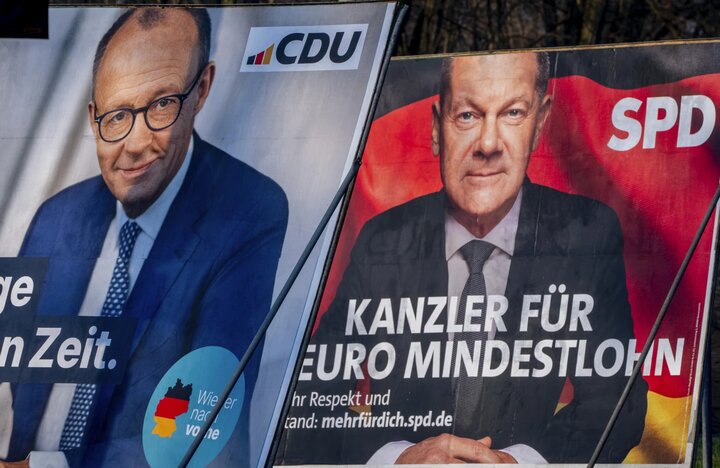Parliamentary elections 2025: Will Germany continue to lead Europe?
Sahar Dadjo: Germany’s parliamentary elections on Sunday have become one of the most important in the country’s recent history. They are being held in the shadow of Donald Trump’s second term as president of the United States and a wider geopolitical upheaval and will shape not only Germany’s domestic politics but also its position in the European Union and its relations with global powers. The dramatic changes in Germany’s political landscape due to economic pressures, the rise of right-wing populism, and shifting coalitions in the European Union have made these elections a critical juncture in determining the country’s future.
Originally scheduled for September 28, 2025, the elections were brought forward to late 2024 due to the collapse of Olaf Schulz’s coalition government, making them the fourth early elections in Germany’s post-war history. These elections are not just an ordinary democratic process but have profound implications for Germany’s future at home and internationally.
As Europe’s largest economy and a key pillar of the European Union, Germany plays a key role in the continent’s economic and political stability. The outcome of the 2025 election will determine which way Germany will go: Will the traditional policies of the centrist parties continue, or will the far right or radical left gain more influence?
A look at the main candidates
1. The main candidate is Friedrich Mertz, whose Christian Democratic Union (CDU) party is leading by about 10 percentage points in the polls. He beat Markus Söder, leader of its ally, the Bavarian Christian Social Union (CSU).
He has promised to strengthen Germany’s leadership role in Europe and increase support for Ukraine.
2. Olaf Schulz has served as chancellor for more than three years, leading an unpopular coalition that fell apart over disagreements over Germany’s strict debt rules.
His government has struggled from the start, largely due to the impact of Russia’s war in Ukraine on the German economy.
Germany has become Europe’s largest supplier to Ukraine. Schulz spoke of a “turning point” in German defense policy and military spending but has been accused of acting too slowly, too late.
He has now promised to support Ukraine “for as long as necessary” and has rejected the idea of any imposed peace.
3. Alice Weidel, 46, is the first AfD candidate for chancellor since the party was founded in 2013. She also has the backing of Elon Musk and met US Vice President JD Vance in Munich.
Weidel has a slim chance of winning, but she has become popular among young voters on TikTok and her party is looking ahead to the next four years.
4. The Green Party, led by Robert Habeck, played a key role in Schulz’s government, serving as vice chancellor and economics minister.
But one of his key policies, the gradual phasing out of fossil fuel heating systems in Germany, has not been well-received, causing the government’s popularity to plummet in the polls. He rules out any return to nuclear power and wants cheaper access to renewable energy, which provided more than 63 percent of Germany’s electricity by the end of last year.
Habeck has taken a hard line on Ukraine and has criticized Friedrich Mertz for relying on the AfD vote.
5. Sarah Wagenknecht, who like Alice Weidel and the AfD, advocates closer ties with Russia, has built a strong base of support in eastern Germany.
The leader of the Zara Wagenknecht coalition party, she describes her politics as “left-wing conservatism” and, while supporting strict immigration and asylum restrictions, presents herself as an alternative to the Alternative for Germany.
She shares the same views as the Alternative for Germany in opposing German military support for Ukraine.

